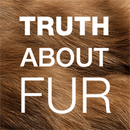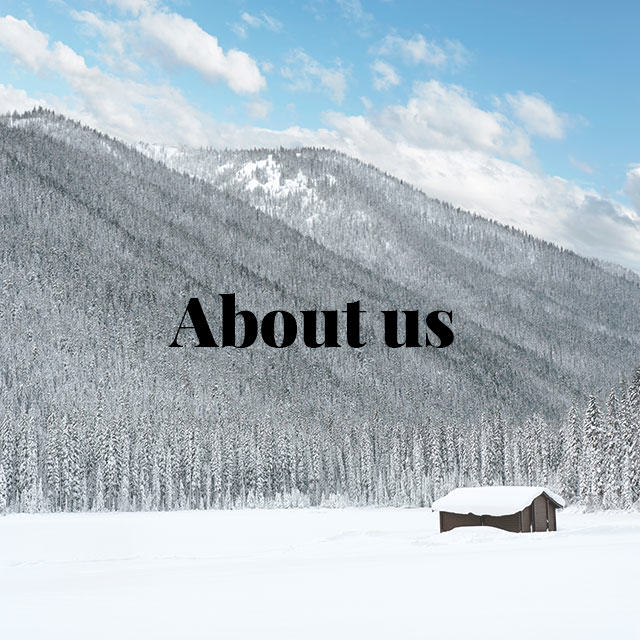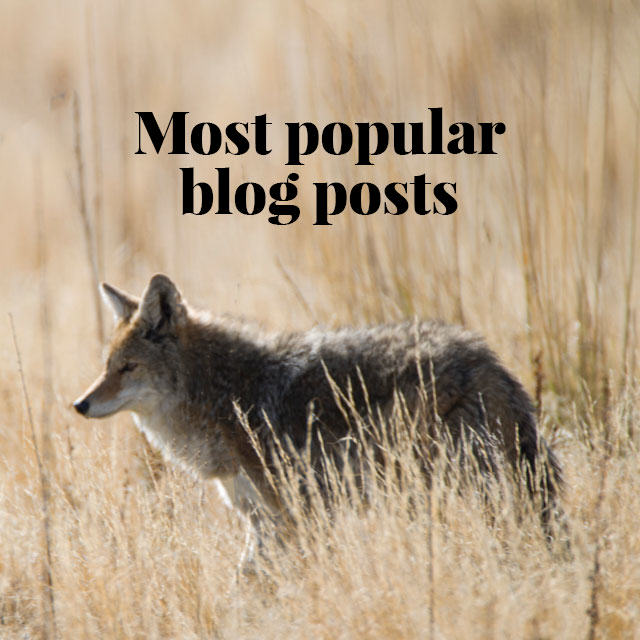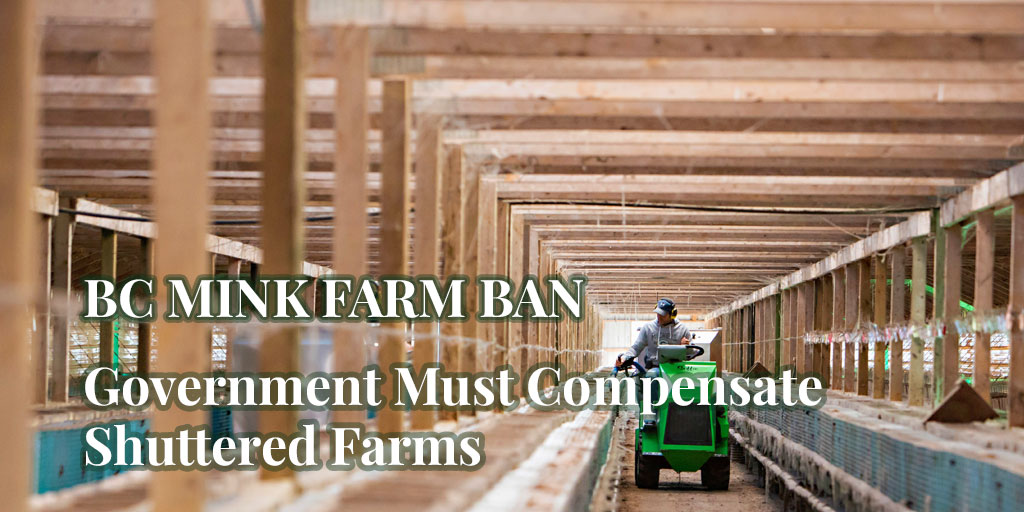
Mink farmers were shocked and saddened recently by a leaked video showing Dr. Bonnie Henry, British Columbia’s Public Health Officer, laughing as she informed her federal and provincial counterparts that the court had rejected a suit seeking fair compensation for farms shut down on her recommendation.
It was the end of a conference call with Canada’s “One Health” committee, in May. As Canada’s Chief Public Health Officer, Dr. Theresa Tam, prepared to wrap up the meeting, Dr. Henry interjected for a final word: “On a positive note, we shut down mink farms in BC, as you may know,” she began with a grin. “Ontario be aware, you still have them,” she laughed. “And they launched a lawsuit against us that was just thrown out yesterday, so, hah hah,” she chuckled. (None of the other public health officers smile during Dr. Henry’s comments.)
This was the latest bizarre twist in the sad saga of the BC Government’s vendetta against the province’s mink farmers.

SEE ALSO : BC Mink Farming Ban: Government refuses compensation for devastated families. Truth About Fur, Feb. 1, 2022.
SEE ALSO: Canadian mink farmers will fight arbitrary ban by BC government. Truth About Fur, Nov. 10, 2021.
Danish Debacle Sets the Scene
The scene had been set in Denmark, in November 2020, where concerns about a new “Cluster 5” variant of the SARS-CoV-2 virus traced back to farmed mink led the government to hastily order a mass cull.
It soon became clear that the risks had been overblown – the “Cluster 5” variant disappeared as quickly as it had emerged – and that the cull was ordered without proper legal authority.(1) The Agriculture Minister resigned, and the Prime Minister was forced to apologize to farmers and call a new election after a scathing report on her government’s mishandling of the issue. But the damage was done; animal activists jumped at this opportunity to fan fears and call for a complete ban on mink farming everywhere.
In British Columbia, a One Health Committee was established in October 2020, to coordinate efforts by animal- and public-health officials to monitor and manage potential Covid risks on mink farms. In December, the BC Centre for Disease Control judged that Covid on mink farms did not present an increased risk to public health.(2) In June 2021, a risk assessment found the probability of a dangerous variant emerging from BC mink farms to be “unlikely/very-unlikely”.
Nonetheless, after mink on three of the province’s nine farms had contracted Covid-19, on July 26, 2021, the Public Health Officer imposed a moratorium on new farms, and capped the number of mink at existing levels.
The farmers worked with the PHO to augment strict biosecurity measures: access to farms was limited; protective clothing, masks, and visors were used; and workers with flu-like symptoms did not enter the barns. The farmers felt they were working cooperatively with their Government to responsibly manage any possible risks.
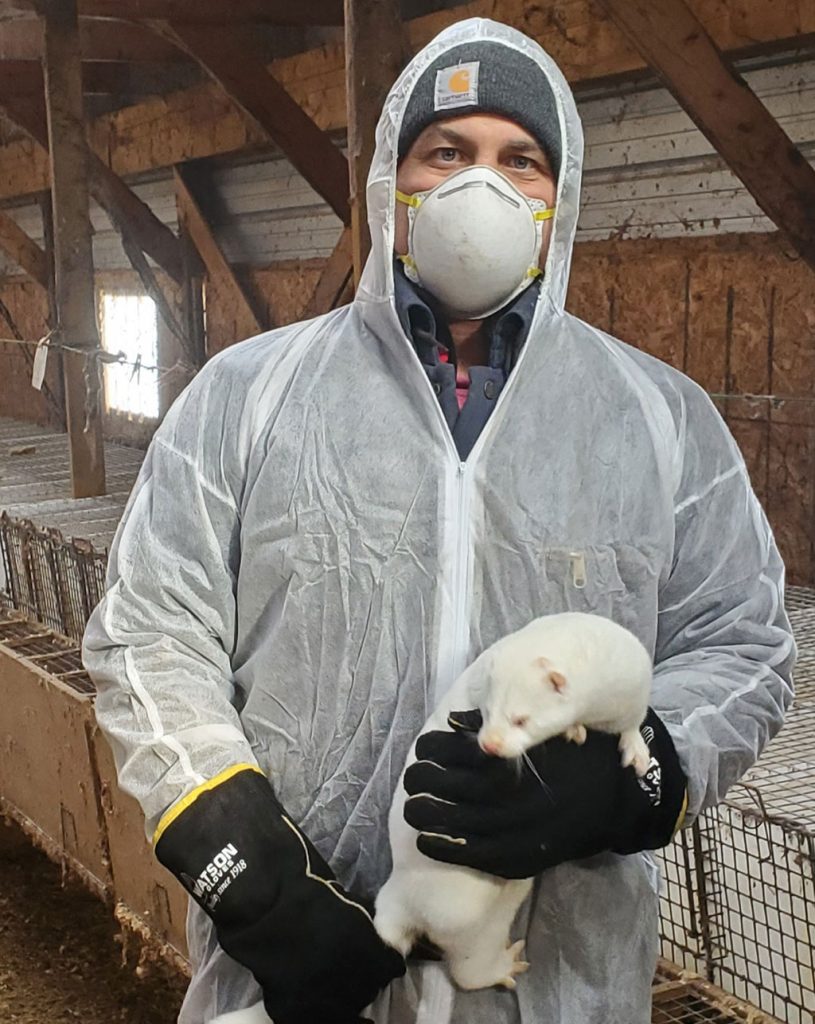
Just a few months later, however, on November 5, 2021, the Government suddenly announced that mink farming would be “phased out” in BC, following “the recommendations of public health officials and infectious disease experts,” said Agriculture Minister, Lana Popham. “We believe the risk is too great for operations to continue as they were,” said Dr. Henry.(3)
By Order in Council, on November 26, farmers were ordered not to breed their mink, and were given 15 months (until April 1, 2023) to pelt or sell their remaining animals – destroying, with the stroke of a pen, the life-work and livelihoods of the province’s mink-farming families.
This harsh directive was suspect from the start because, while farmed mink in several US states had also tested positive for Covid-19, the US Centers for Disease Control (CDC) determined that the risk to human health was low so long as farmers maintained good biosecurity protocols.(4) No other North American jurisdiction has followed BC’s decision to ban mink farming.
Influence of Animal Rights Groups Suspected
BC farmers suspected that the province’s militant animal-rights groups had unduly influenced the Government’s over-the-top response, and these concerns soon seemed to be confirmed.
In response to the farmers’ motion (February 15, 2022) for a judicial review of the mink-farming ban – seeking to have the Order in Council “suspended and declared to be of no force and effect”, the province refused to provide the full record of documents and other information that Cabinet had consulted. Full disclosure was not needed, government lawyers argued, because Cabinet was legally entitled to revise the fur-farming regulations as it wished.
On May 13, 2022, lawyers representing the farmers, with their provincial and national associations, formally petitioned for the full record of documents consulted by Cabinet. They argued that the farm ban was unreasonable because more responsive and less invasive measures were available to protect public health, including enhanced biosecurity.
Furthermore, it was blatantly illogical for the government to claim that a farm ban was urgently needed to protect public health while allowing live mink to remain on farms until April 2023.
Above all, it was unjustified to impose a permanent ban when there was no evidence that mink were playing a significant role in the spread of Covid-19 to humans.
Government Lawyers Resist Court Order
In response, on October 5, 2022, Justice Millman of the Supreme Court of British Columbia ordered the Government to file the full record of documents with the court.(5) Government lawyers appealed his decision, but on July 31, 2023, the BC Court of Appeal upheld most of the lower court’s order.(6)
Rather than comply, the Government appealed again, this time to the Supreme Court of Canada, claiming Cabinet privilege – and there it still sits.
While the Government’s stable of in-house lawyers stalled the judicial review, the clock was ticking (not coincidentally?) through the two-year limit available for the mink farmers to claim compensation for their losses. In November 2023, therefore, to ground their compensation claim in a “cause for action”, five farms sued the Province (and the then-Minister of Agriculture, the then-Chief Veterinarian, and the Public Health Officer) for “misfeasance in public office”. The Province was also sued for “constructive taking”, a sort of de facto expropriation.
The farmers claimed misfeasance because, they argued, the mink farm ban did not serve any legitimate purpose related to the Animal Health Act (the legislation under which the Fur Farm Regulations are enacted), but rather was done for “improper collateral political, social, or public opinion reasons.” In other words, mink farming did not pose a serious or urgent threat to public health, and the Government knew it … or should have known it.
In his May 7, 2024, judgement for the Supreme Court of British Columbia, however, Justice Francis deemed that, as a political body, Cabinet is entitled to make decisions based on political or any other considerations.(7) He found no misfeasance or constructive taking. This was the judgement that so tickled Dr. Henry’s fancy – but it would be troubling if governments could, indeed, act without regard to facts or their own publicly-stated intentions. The farmers will be appealing.
“Cruel and Cynical Game”
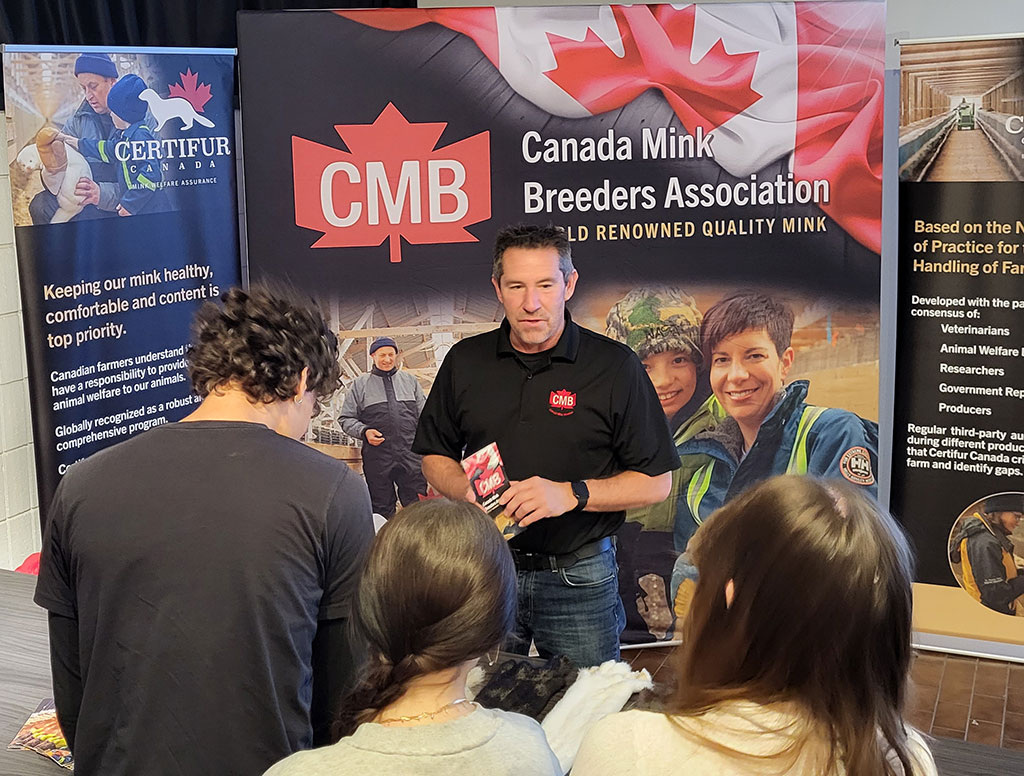
“It’s a cruel and cynical game the Government is playing,” says Rob Bollert, president of the Canada Mink Breeders Association. “Each time they drag out proceedings, the farmers have to find money to pay more lawyers.”
“We have to wonder why BC was the only North American jurisdiction to consider it necessary to ban mink farming, and why the Government has refused to provide the full record of how this decision was made. What was the role, access, and influence of animal-rights groups in the Government’s action? Is this what they are hiding? And why is the BC Government refusing fair compensation for the farmers whose livelihoods they so arbitrarily destroyed?”
“This tragic story raises important questions that should concern everyone in a democratic society,” says Bollert.
The questions are also timely because mink farming boasts some impressive sustainability credentials. Farmed mink are fed leftovers from abattoirs and fish-processing plants, the parts of food animals that humans don’t consume – recycling wastes into valuable products. Mink apparel and accessories are handcrafted by skilled artisans; they are warm, and long-lasting, and after decades of use can be thrown into the garden compost where they will biodegrade completely. If we are looking for sustainably produced clothing materials, mink checks all the boxes.
Mink farms in British Columbia were licensed by the provincial Government, and inspected to ensure compliance with responsible animal-welfare and biosecurity standards. In fact, the high-quality mink for which BC was known can only be produced when the animals are provided with excellent nutrition and care.
“Mink produced in British Columbia received some of the highest prices in international markets, reflecting generations of work to develop top breeding stock,” says Bollert. “Mink farmers generated millions of dollars in exports for British Columbia, and provided employment in rural communities. In good faith, they made substantial investments to ensure animal welfare and sustainable growth. Through no fault of their own, they are now saddled with debts they have no way to repay. The government’s knee-jerk reaction to Covid concerns has created terrible emotional and financial hardship for these farm families.”
And what of the Government’s promise to help mink farmers “transition” to other agricultural sectors? “Nothing,” one farmer told me bluntly. “The contacts they gave us all went dead once we called for a judicial review. All they offered was grief counselling!”
Hypocrisy at Play
There seems to be a fair measure of hypocrisy at play. Despite real concerns about avian and swine flu, the BC Government doesn’t shut down chicken and pork production – although animal-rights groups want this too. Were mink farmers sacrificed to animal-extremist demands because they lacked the financial and political clout of these larger sectors?
Whatever the reasons – and whatever our personal opinions about mink farming – surely we can agree that if “society”, as represented by our elected government, chooses, rightly or wrongly, to shut down a well-regulated agricultural sector, and legislate hard-working farmers out of business, the least these families deserve is fair compensation for their losses.
With all due respect, Dr. Henry, this is really no laughing matter.
* * *
FOOTNOTES
(1) On Nov. 12, 2020, the European Centre for Disease Prevention and Control concluded that although people working directly with mink should take extra precautions, the risk posed by SARS-CoV-2 mink-related variants was low for the general public, no different than other (non-mink) strains. The Danish public health institute Statens Serum Institut concluded in its May 2022 report that the risk was low that mink farming would lead to the emergence of variants of concern. “Overall, the probability can be characterised as low,” it said. “and is assumed to be significantly less than the probability that these will arise in a world population of 7.9 billion people.” One European study argued that governments should maintain mink on farms, not cull them, because the reduced lethality and infectivity of mink-specific mutations of virus may be useful as vaccine for humans! See: “SARS-CoV-2 mutations among minks show reduced lethality and infectivity to humans.“
(2) “Neither the mutation nor the outbreak present an increased risk to human health at this time,” stated the BC Centre for Disease Control on Dec. 23, 2020.
(3) While Dr. Henry seemed eager to shut down mink farms, she was sometimes less enthusiastic about implementing internationally recognized measures to reduce Covid-transmission risks. From 2020-2022 she was criticized several times by public health experts for being slow to mandate the wearing of masks in the province’s schools and hospitals, and for lack of transparency about infection rates in those institutions. As recently as April 2023, BC’s Human Rights Commissioner, Kasari Govender, stated that Dr. Henry’s removal of mask requirements in BC medical settings “does not uphold a human-rights centred approach to public health.”
(4) “Currently, there is no evidence that mink are playing a significant role in the spread of COVID-19 to people,” said an updated CDC statement on Apr. 7, 2023. Another expert opinion was that of Dr. Anthony Fauci, then Director of the National Institute of Allergy and Infectious Diseases, who told a webinar in November 2020, “It does not appear, at this point, that that mutation that’s been identified in the minks is going to have an impact on vaccines and affect a vaccine-induced response.” See also the reply by John Easley, DVM, Director of Research, Fur Commission USA.
(5) Canada Mink Breeders Association v. British Columbia, 2022 BCSC 1731.
(6) The Court of Appeal removed only the requirement to provide documents that had been “indirectly” consulted by Cabinet, e.g., studies or reports that may have informed documents reviewed by the Ministers. British Columbia (Lieutenant Governor in Council) v Canada Mink Breeders Association, 2023 BCCA 310.
